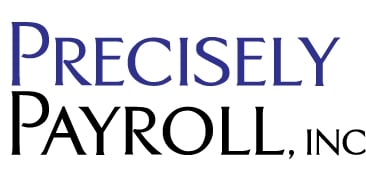Managing employee benefits is like navigating a maze for many small businesses and HR professionals. Among the various terms that pop up in payroll and HR documents, “accruals” is one of the most commonly misunderstood concepts. Yet, it plays a crucial role in both employee satisfaction and business financial planning.
If you’ve been scratching your head about what accruals are, how they work, and why they matter, this guide will provide all the clarity you need. By the end, you’ll understand how to implement accrual systems that keep your employees happy and your books balanced.
What Are Employee Accruals?
Employee accruals refer to the record-keeping of benefits, compensation, or expenses that an employee has earned but not yet received. Essentially, they’re liabilities recorded in the employer’s books until they’re paid out.
These accruals typically include:
- Paid Time Off (PTO), such as vacation and sick leave
- Bonuses or Profit Share Contributions
- Overtime Pay
- 401(k) or pension contributions
- Unpaid wages for hours employees worked but haven’t been reimbursed yet (e.g., when payroll is processed biweekly).
For example, imagine an employee earns 10 hours of vacation per month. By the end of six months, they might have accrued 60 hours of vacation time, even if they haven’t used it yet.
Accrual Systems in Payroll
There are two primary accounting methods for handling employee benefits—a cash basis and an accrual basis:
Cash Basis Accounting only recognizes wages and benefits when they’re paid out.
Accrual Basis Accounting, however, records employee earnings (like PTO or bonuses) as they are earned, even if they haven’t been paid yet.
Most organizations adopt the accrual method because it offers a more accurate picture of liabilities, making it easier to plan ahead.
Why Are Accruals Important?
Accruals are not just a boring accounting concept—they directly impact employees and businesses in significant ways. Here’s why they matter:
1. Fostering Employee Trust and Satisfaction
Employees expect their benefits, like PTO or bonuses, to be honored when the time comes. A well-maintained accrual system ensures transparency and consistency, boosting morale. Imagine how disgruntled an employee would feel if they needed their vacation hours but discovered HR mishandled their balance.
2. Legal Compliance
Labor laws in many regions require employers to accurately track accrued benefits like unpaid wages or vacation time. Mishandling employee accruals could land you in legal trouble, resulting in fines, penalties, or even lawsuits.
For example: Many U.S. states have strict laws around unused vacation payouts.
The Fair Labor Standards Act (FLSA) mandates accurate tracking of unpaid overtime for non-exempt employees.
3. Accurate Financial Planning
Accruals reflect your business’s financial obligations. Not accounting for unpaid wages, PTO, or bonuses can result in strained cash flow during payout periods. By recording accruals as liabilities, you can better prepare for expenses and avoid surprises.
4. Retention and Recruitment Benefits
Offering robust benefits like PTO and bonuses is a major draw for attracting top talent. However, the promise of such perks is meaningless unless it’s backed by proper accrual management. This attention to detail can set small businesses apart from competitors during hiring.
5. Tax Implications
Accrued wages and benefits may have implications for your tax filings. For instance, certain unpaid wages may be deductible, depending on your local tax laws. Staying on top of accruals ensures compliance with tax reporting requirements.
How to Manage Accruals Effectively
Managing accruals may sound daunting, but with the right practices in place, it’s a straightforward process. Here’s how to get started:
1. Determine Your Accrual Policy
Establish a clear policy that outlines:
- How benefits like vacation time are accrued (e.g., monthly or quarterly).
- The maximum carry-over limits, if any.
- The payout rules for unused benefits (e.g., will unused vacation hours be rolled over or paid out at the end of the year?).
- Clearly communicate this policy to employees to avoid misunderstandings.
2. Integrate Payroll and HR Systems
Manual tracking of employee benefits is inefficient and prone to errors. Instead, invest in payroll software that automates accrual tracking. Many platforms offer features like:
- Calculating PTO accruals in real-time.
- Providing employees self-service portals to view their earned benefits.
- Automatically generating reports on liabilities for the accounting team.
3. Regularly Review and Update Employee Records
Ensure your HR and payroll teams collaborate to update accrual balances accurately. For example:
- Vacation time accruals should reflect any hours used.
- Bonuses should be recalibrated after changes in performance metrics.
- Schedule periodic reviews to catch any discrepancies before they escalate into larger problems.
4. Comply With Federal and State Laws
Different regions have different requirements when it comes to accruals. For example:
- In Oregon, vacation pay, holiday pay, bonuses, and severance pay are examples of wage agreements which may be made between employers and employees as a part of the employee’s total compensation. There is no legal requirement to offer these benefits.
- In Oregon, employers don’t have to pay time and a half on holidays.
Stay informed about applicable labor laws and adjust your policies accordingly.
5. Provide Transparent Communication
Transparency builds trust. Empower your employees by:
- Providing regular updates on their accrual balances via pay stubs or self-service apps.
- Educating them on how they earn benefits, including time frames and eligibility criteria.
- When employees are involved, they’re more likely to appreciate the value of benefits you offer.
6. Plan for Financial Liabilities
Accrued liabilities can be a ticking time bomb for cash-strapped businesses. Work closely with your financial advisor or accountant to set aside reserves for anticipated payouts. This is particularly important for seasonal businesses or those operating with tight margins.
For example, if you offer annual bonuses, estimate the total amount due well in advance and include it in your operational budget.
Common Challenges with Accruals (and Solutions)
Even with best practices, hiccups are inevitable. Here are common challenges you might face and how to address them:
1. Miscalculating PTO Balances
Solution: Use automated payroll software that reduces human error and ensures accuracy. Precisely Payroll can help you with payroll software.
2. Confusion Over Policies
Solution: Clearly outline accrual policies in your employee handbook and review them during onboarding.
3. Managing Payouts During High Turnover
Solution: Prepare financially by setting up an accrual liability account to cover payouts during employee departures.
4. Staying Updated with Labor Laws
Solution: Regularly consult with legal advisors or subscribe to HR compliance newsletters to stay informed about changes.
Accrual with Payroll Systems in Central Oregon
Accruals might seem like just one more box to check in payroll and HR processes, but their importance cannot be overstated. They’re central to fostering trust with your employees, maintaining legal compliance, and ensuring your business operates smoothly.
By implementing effective accrual management systems, small businesses can keep their employees happy and their financial plans on track. And remember, you don’t have to go it alone! Whether you opt for automated payroll software or consult with an HR expert, there are countless resources to help you streamline the process.
Start managing accruals the right way today, and set your business (and your employees!) up for long-term success. Precisely Payroll can help tracking employee accrual while following Oregon state laws. Our advanced software can help your accounting department work more efficiently. Contact us today by phone at (541) 317-0100 or email us at tanya@preciselypayroll.com.

